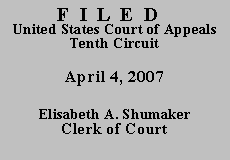

Plaintiff-Appellee,
v.
RUBEN PARTIDA-CERVANTES,
Defendant-Appellant.
04-CR-10029-WEB)
UNITED STATES OF AMERICA,
Defendant then filed a § 2255 petition alleging involuntary and unknowing waiver of appellate rights, ineffective assistance of counsel at sentencing, and unconstitutional Booker error at sentencing. The district court rejected these claims and denied Defendant's request for a certificate of appealability ("COA"). The district court revisited these claims following Defendant's motion for reconsideration, and after further analysis spurred by Defendant's new arguments, rejected Defendant's motion and confirmed its denial of a COA.
Defendant advances to this court the same arguments he made below in addition to a claim that the district court erred in not granting an evidentiary hearing regarding Defendant's alleged failure to comprehend "safety valve" relief. However, our consideration of these claims is predicated on our issuance of a COA. Defendant is entitled to a COA only if he makes a "substantial showing of the denial of a constitutional right." 28 U.S.C. § 2253(c)(2). To do so, Defendant must demonstrate "that reasonable jurists could debate whether (or, for that matter, agree that) the petition should have been resolved in a different manner or that the issues presented were adequate to deserve encouragement to proceed further." Slack v. McDaniel, 529 U.S. 473, 484 (2000) (quotation omitted). In other words, the applicant must show that the district court's resolution of the constitutional claim was either "debatable or wrong." Id.
Between the district court's original decision denying Defendant's § 2255 petition and its subsequent decision denying Defendant's motion to reconsider, we believe the district court more than adequately addressed Defendant's arguments and see no reason to repeat that effort here. The district court's well-reasoned opinions concluded that Defendant waived by plea agreement his right to collaterally challenge his sentence, received effective assistance of counsel, and comprehended his plea agreement with the aid of counsel and an interpreter.
In addition, the district court analyzed, in the alternative, Defendant's claimed eligibility for "safety valve" relief and concluded that because his underlying crime involved kidnapping by threats of violence, he could not satisfy 18 U.S.C. § 3553(f)(2). Given this result, as well as the district court's correct determination that Defendant received effective assistance of counsel regarding this issue, we do not find that the district court abused its discretion by denying Defendant an evidentiary hearing on this issue. See United States v. Harms, 371 F.3d 1208, 1210 (10th Cir. 2004); United States v. Cox, 83 F.3d 336, 341 (10th Cir. 1996).
Consequently, after having carefully reviewed Defendant's brief, the district court's dispositions, and the record on appeal, we conclude that no reasonably debatable issues are presented by Defendant's appeal. Accordingly, we DENY Defendant's request for a certificate of appealability and DISMISS the appeal. We do, however, GRANT Defendant's motion to proceed in forma pauperis.
Entered for the Court
Monroe G. McKay
Circuit Judge
*. After examining the briefs and the appellate record, this panel has determined unanimously that oral argument would not be of material assistance in the determination of this appeal. See Fed. R. App. P. 34(a)(2); 10th Cir. R. 34.1(G). The case is therefore ordered submitted without oral argument.
This order is not binding precedent, except under the doctrines of law of the case, res judicata, and collateral estoppel. It may be cited, however, for its persuasive value consistent with Fed. R. App. P. 32.1 and 10th Cir. R. 32.1.